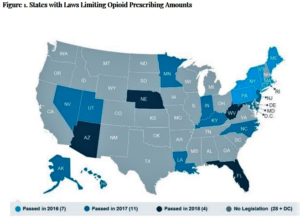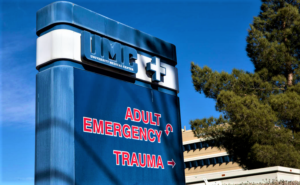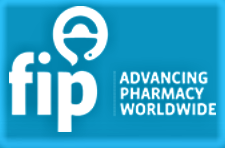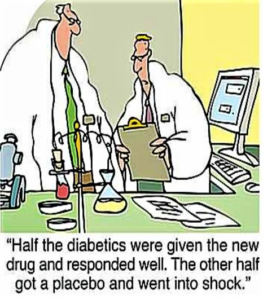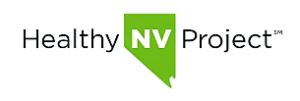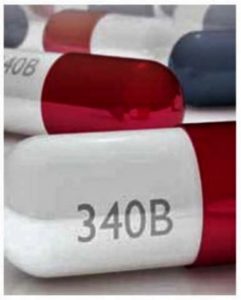- Opioid supply levels decline in most states, report finds (biopharmadive.com)Opioid Supply Levels Decline in Most States (avalere.com)
A new report on opioids from DC-based healthcare consulting firm Avalere found supply levels were 11% lower in 2017 compared with 2016...The decline is seen in most states, and the greatest reductions are where laws have been passed to set limits on opioid prescriptions, with Maine seeing a fall of 24.8% after legislation was passed in 2016...The only state to see an increase was Idaho, with a 59.7% growth in opioid prescriptions. This included an almost three-fold rise between 2016 and 2017 in the amount of oxycodone sold...Avalere's analysis is based on opioid analgesics data from the Drug Enforcement Agency's Automation of Reports and Consolidated Orders System, which tracks distribution of most controlled substances from manufacture through distribution and point-of-sale...
- Cost of ER visits in Nevada rising quickly, report says (reviewjournal.com)
...if you get injured or ill in Nevada, you will pay the second-highest price in the nation just to step through the ER doors...The cost of an emergency department visit in the Silver State, not counting the services actually rendered once you’re admitted, is rising at the fastest rate in the country, according to a report published...by the Health Care Cost Institute. The average price per claim in Nevada was $1,281 in 2016, trailing only No. 1 California by $7...From 2009 through 2016, the latest year for which data was available, the price of an emergency department visit increased 147 percent in Nevada...It rose 98 percent nationwide in the same time period...It could be that Nevadans today are sicker than they were a decade ago...Or it could be that Nevada’s ERs are looking to offset the costs incurred by an increasing number of Medicaid patients...A 2014 expansion of the federal program in the state doubled the number of Medicaid patients to more than 600,000, but state health care providers receive one of the lowest reimbursement rates in the nation...
- Focus on pharmacists’ supply chain expertise in order to improve access to medicines, FIP says (fip.org)
Inefficient pharmaceutical supply chains are partly to blame for a substantial proportion of the world still being without access to basic live-saving medicines, the International Pharmaceutical Federation says in a new report...The report, “Pharmacists in the supply chain: The role of the medicines expert in ensuring quality and availability”, is released in a landscape of challenges such as substandard and falsified medicines, and a shortage of human resources in the health supply chain. “The need to ensure effective and safe medicines supply prompted FIP to take a close look at the actual role of pharmacists in pharmaceutical supply chains. This report -
- aims to provide a foundation from which improvement can develop
- gives a global overview of the role of pharmacists in different supply chains in low-, middle- and high-income countries, and describes the evolution of supply chains
- points out that investment in training and education are needed to strengthen pharmacists’ roles in supply chains.
- I-Team: Audit of UNR’s School of Medicine hidden from public (lasvegasnow.com)State's response to the I-Team requesting the audit report (media.lasvegasnow.com)Statement from University of Nevada, Reno School of Medicine Dean Thomas L. Schwenk, M.D. in response to KLAS-TV report (med.unr.edu)
An explosive but confidential audit which investigated reports of widespread billing errors within the University of Nevada medical school has been kept quiet for more than two years...It's only been known to a handful of officials in the higher education system. But the confidentiality is about to end...The audit uncovered incompetence on a massive scale, and quite possibly, fraudulent billing that continued for years within the University of Nevada's medical school practice...The I-Team has been asking for a copy of the report for weeks. Two days ago, the state said no because it is private and confidential...The audit by an independent firm, "Crowe Horwath," uncovered systemic problems within the University of Nevada, Reno Medical School's billing procedures: overbilling, underbilling, lack of oversight, and potential legal consequences...
- A serious new hurdle for CRISPR: Edited cells might cause cancer, two studies find (statnews.com)CRISPR stocks tank after research shows edited cells might cause cancer (cnbc.com)
Editing cells’ genomes with CRISPR-Cas9 might increase the risk that the altered cells, intended to treat disease, will trigger cancer, two studies published on Monday warn — a potential game-changer for the companies developing CRISPR-based therapies...scientists found that cells whose genomes are successfully edited by CRISPR-Cas9 have the potential to seed tumors inside a patient. That could make some CRISPR’d cells ticking time bombs...The CEO of CRISPR Therapeutics, Sam Kulkarni, told STAT the results are “plausible.” Although they likely apply to only one of the ways that CRISPR edits genomes (replacing disease-causing DNA with healthy versions) and not the other (just excising DNA), he said, “it’s something we need to pay attention to...We need to do the work and make sure edited cells returned to patients don’t become cancerous.”...Standard CRISPR-Cas9 works by cutting both strands of the DNA double helix. That injury causes a cell to activate a biochemical first-aid kit orchestrated by a gene called p53, which either mends the DNA break or makes the cell self-destruct...The flip side of p53 repairing CRISPR edits, or killing cells that accept the edits, is that cells that survive with the edits do so precisely because they have a dysfunctional p53 and therefore lack this fix-it-or-kill-it mechanism...The reason why that could be a problem is that p53 dysfunction can cause cancer...P53 mutations are responsible for nearly half of ovarian cancers; 43 percent of colorectal cancers; 38 percent of lung cancers; nearly one-third of pancreatic, stomach, and liver cancers; and one-quarter of breast cancers...
- How big data can design safer clinical trials and reduce animal testing (outsourcing-pharma.com)A big data approach to the concordance of the toxicity of pharmaceuticals in animals and humans (sciencedirect.com)
Bayer AG and Elsevier studied more than 1.6m adverse events to show how big data can be used to reduce animal testing and design trials "altered to potential risks," says researcher...The entire life sciences industry is committed to reducing animal testing, and all organizations are looking at how this can be done effectively...The study analyzed 1,637,449 adverse events (AEs) reported for both humans and the five most commonly used animals in US Food and Drug Administration and European Medicines Authority regulatory documents for 3,290 approved drugs and formulations...published in the Journal of Regulatory Toxicology and Pharmacology...We already know that animal testing has some predictive capabilities for humans but there has never been a study on this broad scale before to look at the level of exact concordance...Of the study’s key results...the species most frequently used in toxicology (rat and dog)...are performing well with regard to identifying adverse events in humans...also...the negative predictive value is low for many adverse events...no findings in animal often does not mean that no adverse events will occur in humans...some effects observed in some animal species do not imply high risk for humans...The analysis allows a researcher to estimate the human risk implied by a given observed effect in an animal...With access to this kind of information, researchers can design safer clinical trials in the future...
- Healthy Nevada Project Adds 5,000 Testing Slots (ktvn.com)
The Healthy Nevada Project is opening up 5,000 more testing slots for people interested in their genetics study...researchers at Renown Health and DRI have partnered with Helix to assess personal health risks of Nevadans and build a demographic profile of our area...Since kicking off the second phase of the Healthy Nevada Project, researchers have collected 10,000 DNA samples.
- Medicare Part D drug spending spikes by 77% (healthcarefinancenews.com)
Despite a decrease in the number of prescriptions for brand-name drugs going down, Part D spending and out-of-pocket costs both spiked up from 2011 to 2015, according to a new report from the Office of the Inspector General...The total reimbursement for all brand-name drugs in Part D rose by 77 percent from 2011 to 2015 even though there was a 17-percent drop in prescriptions for those drugs. Even after taking into account manufacturer rebates, reimbursement for Part D brand-name drugs still swelled by 62 percent during that time period,...the number of beneficiaries shouldering at least $2000 in out-of-pocket costs per year nearly doubled across the five-year time span and unit costs for brand-name drugs rose nearly 6 times faster than inflation...for small, rural or struggling hospitals whose razor thin margins are already the source of angst for c-suiters, watching drug spend totals steadily rise could force painful decisions like opting to not modernize EHRs or update equipment...
- Early 340B hospitals gave more uncompensated care than later participants (biopharmadive.com)
Hospitals that joined the 340B Drug Pricing Program at its onset provided more uncompensated care and low-profit services to patients than those who joined in its later years, according to a new research letter published in JAMA from researchers at Vanderbilt University and the University of Chicago...Allan Coukell and Sean Dickson...write...that policymakers would be "well served by greater transparency on hospitals' use of 340B revenues," but warn that reductions in 340B eligibility will lead to a transfer from Medicare spending on 340B hospitals to increased revenue for drug manufacturers...In January, a final rule went into effect that cut drug payments to 340B hospitals by almost 30%. The American Hospital Association and other groups are currently suing the U.S. Department of Health and Human Services over the rule. Earlier this month, the U.S. Court of Appeals for the District of Columbia Circuit heard oral arguments for the case...
- NIH opens nationwide enrollment for huge precision medicine initiative (statnews.com)
The All of Us initiative, which will be launched on May 6, aims to compile detailed health profiles of 1 million Americans, with a special focus on communities historically underrepresented in biomedical research...The program, which began as a pilot last year, is the most ambitious attempt yet to compile health and behavioral data, as well as genetic sequencing, from a representative sample of the American population. It will collect electronic health records, survey data, and even information from its participants’ wearable fitness devices – with the goal of helping scientists better understand how to craft personalized treatments, seen by many as the future of biomedicine...

